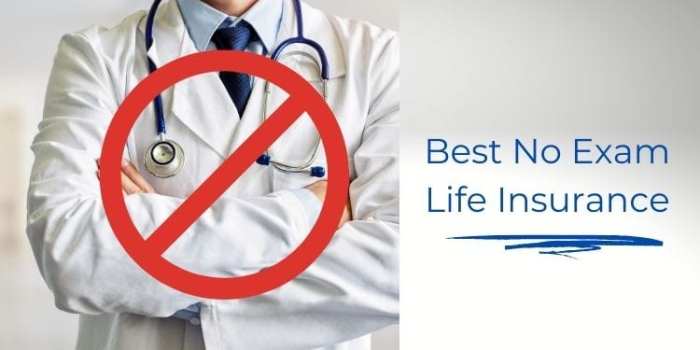Automotive Shop Insurance: Protecting Your Repair Business is an indispensable guide that delves into the intricacies of securing your automotive repair venture. Understanding the types of coverage available, risk management strategies, and the claims process is crucial for safeguarding your business against unforeseen circumstances.
In this comprehensive exploration, we will provide valuable insights and practical advice to help you navigate the insurance landscape and make informed decisions that protect your business.
Coverage Essentials for Automotive Shop Insurance

Automotive shop insurance is a type of business insurance that protects repair shops from financial losses due to covered events. These policies typically include a variety of coverage options to meet the specific needs of each shop.
One of the most important coverage options is general liability insurance. This coverage protects the shop from claims of bodily injury or property damage caused by the shop’s employees or operations. For example, if a customer slips and falls on the shop’s floor, general liability insurance would cover the cost of the customer’s medical expenses and any other damages.
Another important coverage option is property insurance. This coverage protects the shop’s building, equipment, and inventory from damage or loss due to covered events such as fire, theft, or vandalism. For example, if a fire destroys the shop’s building, property insurance would cover the cost of repairing or replacing the building.
In addition to general liability and property insurance, automotive shop insurance policies may also include coverage for:
- Business interruption insurance: This coverage protects the shop from financial losses if it is forced to close due to a covered event.
- Workers’ compensation insurance: This coverage provides benefits to employees who are injured or become ill due to their work.
- Commercial auto insurance: This coverage protects the shop’s vehicles from damage or loss.
The cost of automotive shop insurance will vary depending on the size of the shop, the number of employees, the location of the shop, and the coverage options selected. It is important to compare quotes from multiple insurance companies to find the best coverage at the best price.
Policy Limits and Deductibles
Policy limits are the maximum amount that an insurance company will pay for a covered loss. Deductibles are the amount that the shop must pay out of pocket before the insurance company begins to pay. It is important to choose policy limits and deductibles that are appropriate for the shop’s needs and financial situation.
For example, a shop with a high volume of customers may want to choose higher policy limits for general liability insurance to protect itself from large claims. A shop with a limited budget may want to choose higher deductibles to reduce the cost of premiums.
Risk Management Strategies for Automotive Shops

Operating an automotive shop involves inherent risks that can impact the safety of employees, customers, and the business itself. Implementing comprehensive risk management strategies is crucial to mitigate these risks and ensure the smooth operation of the shop.
Common risks associated with automotive shops include:
- Employee injuries from handling heavy equipment or exposure to hazardous chemicals
- Customer injuries from slips and falls or equipment malfunctions
- Damage to vehicles or property due to accidents or negligence
- Fires or explosions caused by flammable materials or electrical issues
- Theft of tools, equipment, or vehicles
To mitigate these risks, automotive shops should implement the following strategies:
Safety Protocols
Establishing clear safety protocols is essential for minimizing the risk of accidents and injuries. These protocols should cover:
- Proper use and maintenance of equipment
- Handling and storage of hazardous materials
- Emergency procedures for fires, spills, and accidents
- Regular safety inspections and training for employees
Equipment Maintenance
Regularly maintaining and inspecting equipment is crucial for preventing breakdowns and accidents. This includes:
- Scheduled maintenance checks
- Daily inspections of equipment
- Calibration and testing of diagnostic tools
- Proper storage and handling of equipment
Insurance
Insurance plays a vital role in risk management by providing financial protection against unexpected events. Automotive shops should consider the following types of insurance:
- General liability insurance: Covers bodily injury or property damage to third parties
- Commercial property insurance: Protects the shop’s building, equipment, and inventory
- Business interruption insurance: Provides compensation for lost income due to business disruptions
- Workers’ compensation insurance: Covers employee injuries and illnesses
- Garagekeepers’ liability insurance: Protects against damage to customer vehicles while in the shop’s care
Comparing Automotive Shop Insurance Policies
Comparing automotive shop insurance policies is crucial to find the most suitable coverage for your business. Consider the following factors:
Coverage
- General liability: Protects against claims of bodily injury, property damage, and advertising injury.
- Property insurance: Covers physical assets like buildings, equipment, and inventory.
- Business interruption insurance: Provides financial support if business operations are interrupted due to a covered event.
- Workers’ compensation insurance: Covers medical expenses and lost wages for employees injured on the job.
- Garagekeepers liability insurance: Protects against damage to customers’ vehicles while in your care.
Premiums
Premiums vary based on factors such as location, claims history, and coverage limits. Obtain quotes from multiple insurers to compare costs.
Deductibles
Deductibles are the amount you pay out-of-pocket before insurance coverage kicks in. Higher deductibles typically result in lower premiums, but ensure you can afford the deductible in case of a claim.
Table Comparing Policy Features
| Feature | Policy A | Policy B | Policy C ||—|—|—|—|| General Liability Coverage | $1,000,000 | $2,000,000 | $3,000,000 || Property Insurance Coverage | $500,000 | $750,000 | $1,000,000 || Business Interruption Insurance | 12 months | 18 months | 24 months || Workers’ Compensation Insurance | Statutory limits | Statutory limits + $100,000 | Statutory limits + $200,000 || Garagekeepers Liability Insurance | $100,000 | $200,000 | $300,000 || Premium | $2,000 | $2,500 | $3,000 || Deductible | $500 | $1,000 | $1,500 |
Tips for Choosing the Most Suitable Policy
- Assess your business’s risks and coverage needs.
- Compare quotes from multiple insurers.
- Consider your financial capabilities for premiums and deductibles.
- Read the policy carefully to understand the terms and conditions.
- Consult with an insurance broker or agent for guidance.
Claims Process for Automotive Shop Insurance: Automotive Shop Insurance: Protecting Your Repair Business
Filing an insurance claim for an automotive shop involves a series of steps to ensure proper documentation and timely processing. Understanding the process and following best practices can help shops minimize disruptions and recover losses efficiently.
When an incident occurs, the first step is to report the claim to the insurance company as soon as possible. This can be done by phone, email, or through an online portal. The insurance company will assign a claims adjuster to handle the claim and guide the shop through the process.
Documenting Losses
Proper documentation is crucial for supporting the claim and ensuring accurate assessment of losses. The shop should gather detailed information about the incident, including the date, time, location, and description of damages. Photographs and videos can provide valuable evidence. Additionally, the shop should collect repair estimates, invoices, and any other relevant documentation that supports the claim.
Preparing Supporting Documentation
The insurance company may request additional documentation to support the claim. This may include financial records, business licenses, and proof of ownership. The shop should cooperate with the insurance company and provide all necessary information promptly to facilitate the claims process.
Importance of Timely Claim Reporting
Timely claim reporting is essential to ensure coverage under the insurance policy. Most policies require claims to be reported within a specified period after the incident occurs. Delaying the claim process can result in disputes, coverage limitations, or even denial of the claim.
Communication with the Insurance Company
Effective communication with the insurance company is vital throughout the claims process. The shop should maintain open lines of communication, provide updates on the repair process, and promptly respond to any requests from the claims adjuster. Regular communication helps ensure a smooth and timely settlement of the claim.
Case Studies and Examples of Automotive Shop Insurance

Automotive shop insurance provides financial protection to businesses against various risks, such as property damage, liability claims, and business interruption. Here are a few case studies and examples that demonstrate the benefits of having adequate insurance coverage and the consequences of being underinsured:
Case Study: Property Damage Protection
A fire broke out in an automotive shop, causing extensive damage to the building and equipment. The shop had comprehensive insurance coverage, which covered the cost of repairs and replacement of damaged property. The insurance policy also included business interruption coverage, which provided financial assistance to the shop during the period it was closed for repairs.
Case Study: Liability Claims Protection
A customer’s vehicle was damaged while being serviced at an automotive shop. The customer filed a lawsuit against the shop, claiming negligence. The shop’s liability insurance covered the legal expenses and settlement costs associated with the claim, protecting the business from financial ruin.
Example: Consequences of Being Underinsured, Automotive Shop Insurance: Protecting Your Repair Business
An automotive shop had minimal insurance coverage to save on premiums. When a major storm caused significant damage to the shop’s roof, the insurance policy did not provide enough funds to cover the repair costs. The shop was forced to close for an extended period, resulting in lost revenue and financial hardship.
Benefits of Working with Experienced Insurance Professionals
Partnering with experienced insurance professionals is crucial for obtaining the right coverage for an automotive shop. These professionals can assess the specific risks faced by the business and recommend tailored insurance policies that meet its unique needs. They can also assist with policy review, claims handling, and risk management strategies.
Last Point
In conclusion, Automotive Shop Insurance: Protecting Your Repair Business serves as a valuable resource for safeguarding your automotive repair enterprise. By understanding the coverage options, implementing risk management strategies, and navigating the claims process effectively, you can ensure the longevity and success of your business.
Remember, investing in adequate insurance coverage is not merely a financial decision; it’s an investment in the future of your repair business.
FAQ Resource
What are the key types of coverage included in automotive shop insurance?
Automotive shop insurance typically includes coverage for property damage, liability, business interruption, and tools and equipment.
How can I reduce the risks associated with operating an automotive shop?
Implementing safety protocols, maintaining equipment, and conducting regular employee training can help mitigate risks in an automotive shop.
What factors should I consider when comparing automotive shop insurance policies?
When comparing policies, consider coverage limits, deductibles, premiums, and the reputation and financial stability of the insurance company.
 Astech World Business News Astech World Business News
Astech World Business News Astech World Business News



















